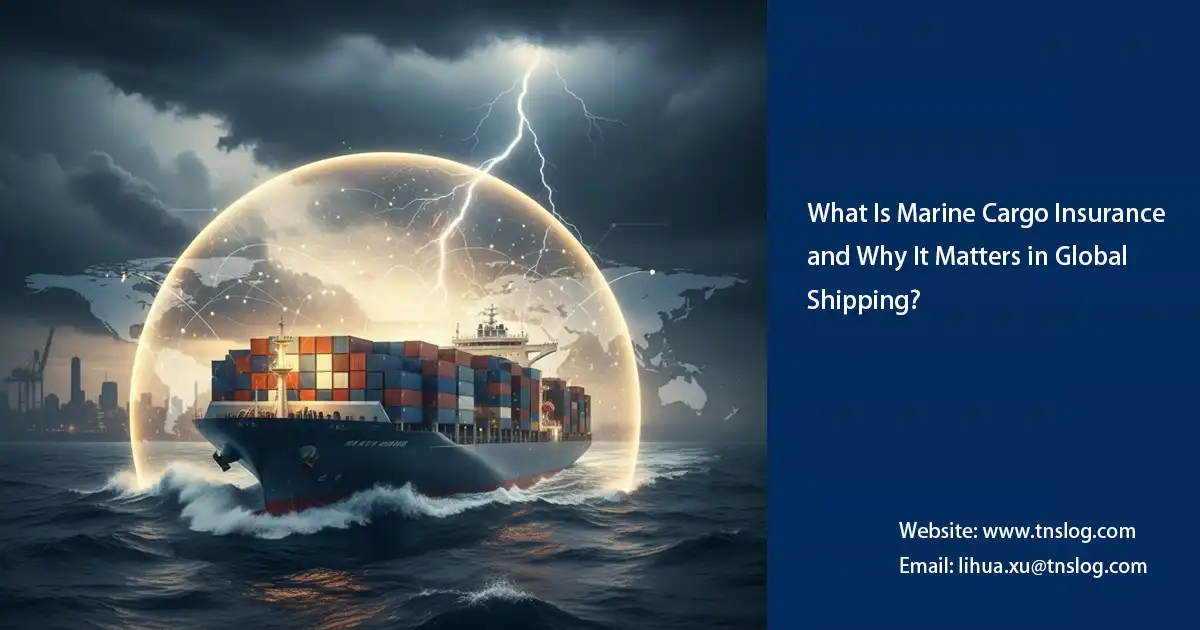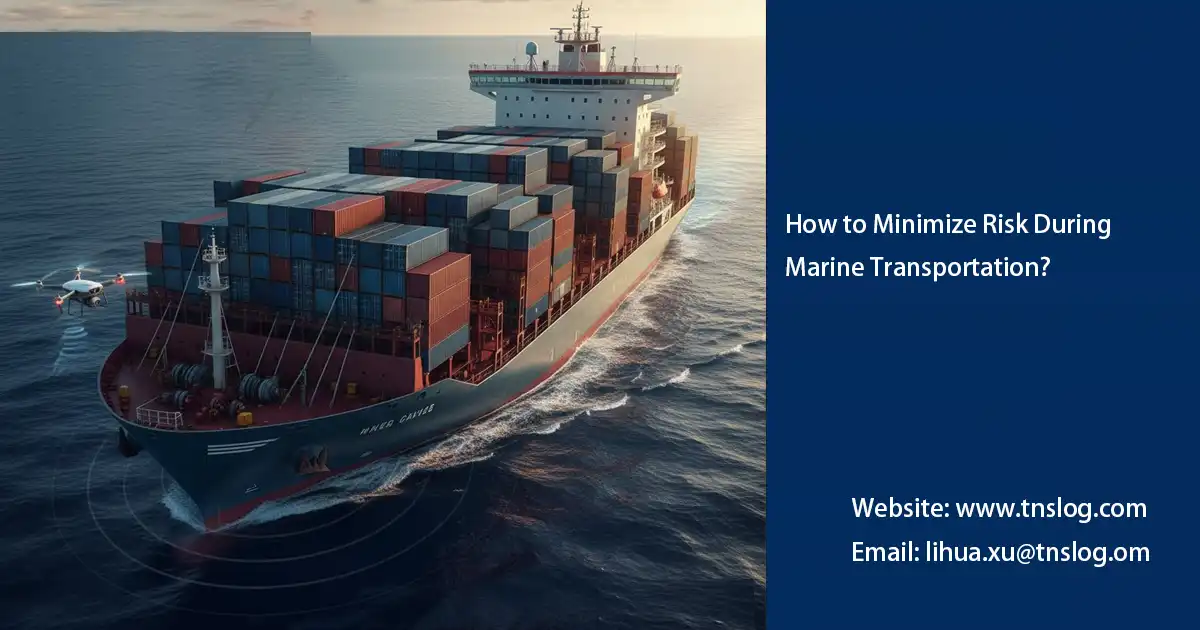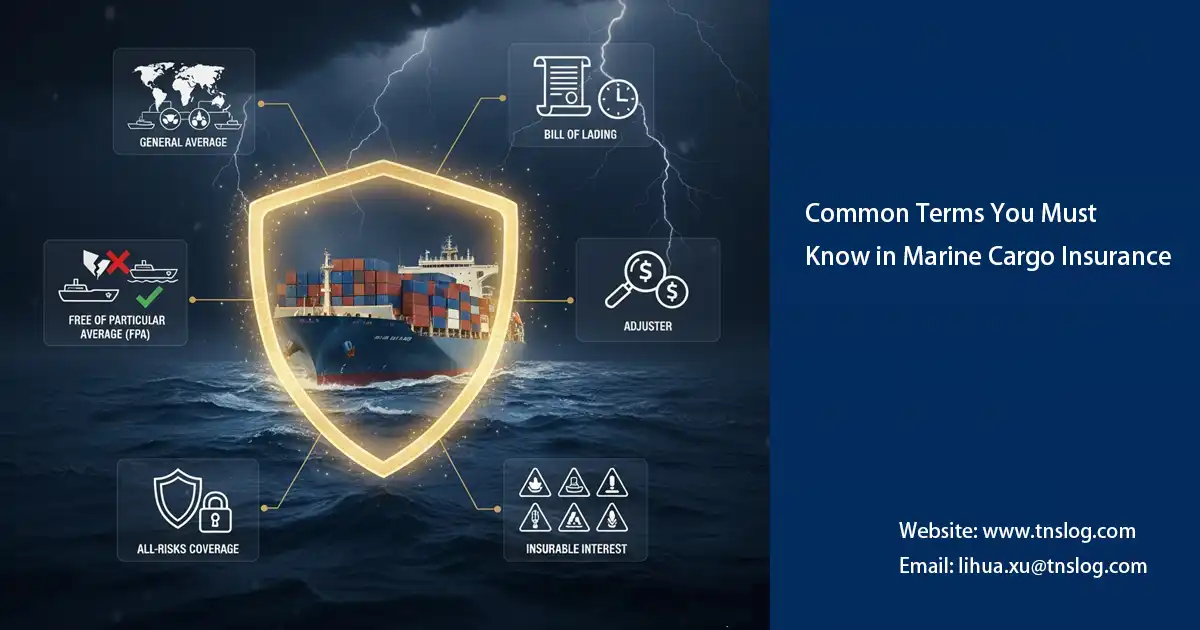Top Marine Insurance Companies & How to Compare Them
When it comes to protecting your cargo, choosing the right marine insurance provider is critical. Different insurers offer varying rates, coverage levels, and claims processes. But why do premiums for the same shipment and route sometimes differ by as much as 20–30%?
This article provides a detailed comparison of major marine insurance providers, examining their coverage terms, reliability, and pricing strategies. You’ll also find actionable tips to help you optimize your marine insurance rates and negotiate better premiums.
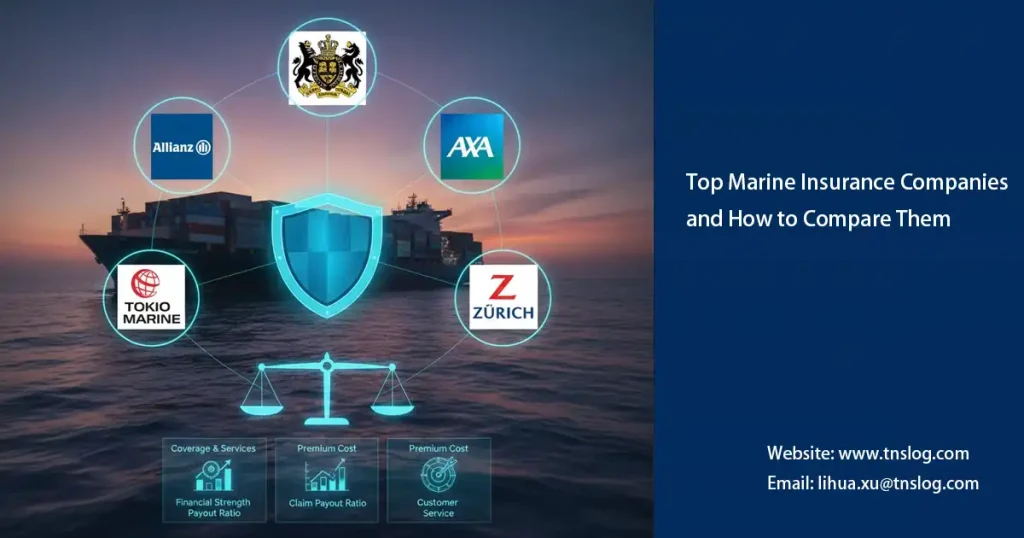
What are the top marine insurance providers?
The global marine insurance market is dominated by a few long-established companies, including Lloyd’s of London, Allianz, AXA, Tokio Marine, and Zurich.
Most of these providers base their policies on the internationally recognized Institute Cargo Clauses (ICC) framework, which defines three main coverage types:
- ICC (A): Equivalent to All Risk coverage, offering the broadest protection.
- ICC (B): Covers selected perils, suitable for mid-value cargo.
- ICC (C): Similar to Total Loss Only insurance, covering basic risks.
For example, Tokio Marine is well-known for its expertise in Southeast Asia trade routes, while Allianz specializes in high-value machinery and industrial cargo.
If you want to learn how to further reduce your premiums, check out the related article Tips to Reduce Your Marine Cargo Insurance Premium.
Comparison of coverage and premiums from top marine insurance providers
| Provider | ICC Clause Type | Coverage Scope | Avg. Premium (USD) | Key Strength |
|---|---|---|---|---|
| Lloyd's | ICC (A) | Comprehensive | $500-$900 | Global claims network |
| Allianz | ICC (B) | Moderate | $400-$700 | Balanced cost and coverage |
| Tokio Marine | ICC (A) | High | $450-$800 | Fast claims response |
| AXA | ICC (C) | Basic | $300-$600 | Entry-level pricing |
By analyzing the ICC clause type, coverage scope, and claim reputation, shippers can select the most suitable protection plan for their cargo type and shipment frequency.
Customer Reviews and Reliability
Claims responsiveness and customer satisfaction are key indicators of a marine insurer’s reliability. According to the Global Marine Risk Survey 2025, insurers with faster claim settlements have a 22% higher client retention rate.
Among the top performers, Allianz and Tokio Marine stand out for their transparent processes and quick claim resolutions. On the other hand, some budget insurers may offer low premiums but suffer from complex documentation requirements and delayed payouts.
Remember: the cheapest provider isn’t always the safest choice.
How to Choose the Best Provider for Your Cargo
When selecting a marine insurance provider, businesses should evaluate their cargo profile, trade routes, and risk tolerance. Key factors include:
- Cargo Type and Value: High-value cargo (e.g., machinery or electronics) should be insured under ICC (A) for comprehensive protection.
- Shipping Route: High-risk routes (e.g., West Africa or the Middle East) may require additional war or piracy clauses.
- Provider Expertise: Some insurers specialize in industries like chemicals or energy, offering more tailored solutions.
- Buying Through a Freight Forwarder: Partnering with a freight forwarder can simplify the entire insurance and claims process.
Many freight forwarders—including ours—work directly with selected insurers to provide end-to-end coverage solutions, from policy issuance to claims assistance. To learn more, see Should You Buy Marine Insurance Through Your Freight Forwarder?
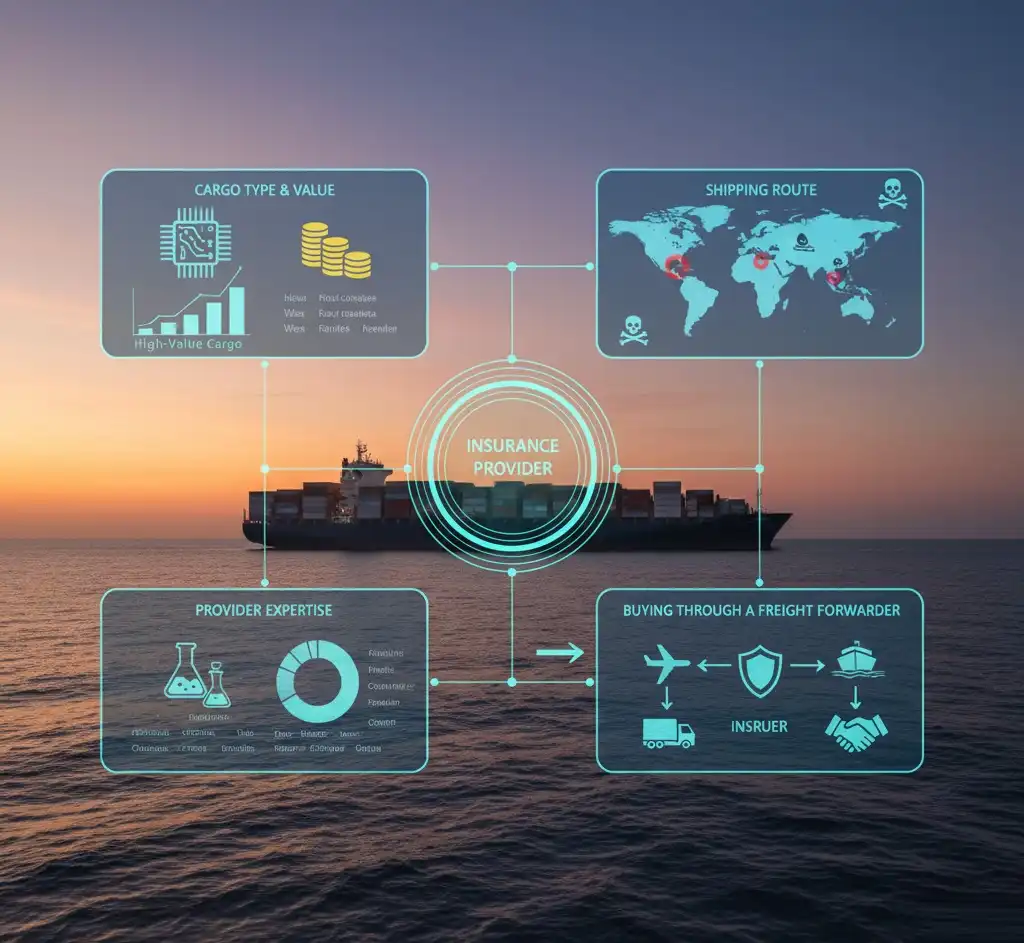
Tips for Negotiating a Better Marine Insurance Rate
Once you’ve shortlisted potential providers, effective negotiation can significantly reduce your costs. Here are six proven strategies (key points highlighted for clarity):
- Provide detailed shipment records – Show your complete shipping history and performance to build trust with insurers.
- Bundle multiple shipments – Combining policies can earn volume discounts, ideal for frequent exporters.
- Maintain a clean claims history – Avoiding small claims helps you secure lower renewal rates.
- Leverage your freight forwarder’s bargaining power – Experienced forwarders often secure better rates through long-term partnerships with insurers.
- Review your policy annually – Update coverage to reflect new routes, commodities, and risk levels.
- Compare ICC clauses wisely – Adjust from ICC (C) to ICC (A) as your risk profile changes to balance cost and coverage.
Ready to secure better marine insurance rates? Contact our insurance specialists today to receive a customized quote based on your cargo type and shipping routes.
Conclusion
Comparing rates among top marine insurance providers isn’t just about finding the lowest premium — it’s about building a smarter risk management strategy.
By understanding ICC clause structures, assessing reliability, using negotiation techniques, and partnering with trusted freight forwarders, you can achieve the perfect balance between cost efficiency and comprehensive protection.
Reach out to our marine insurance experts today to safeguard your shipments with confidence and secure the best value for your coverage.
You may also be interested in
Have Anything To Ask Us?
Please fill in your email in the form and we’ll get back to assist you soon!

